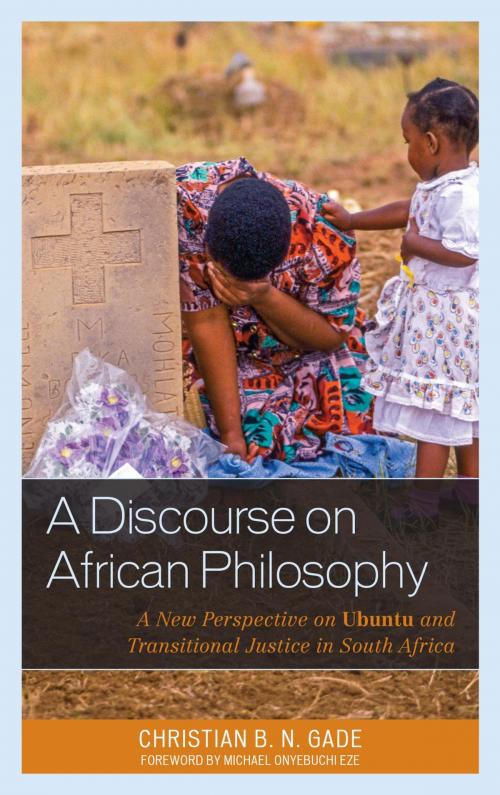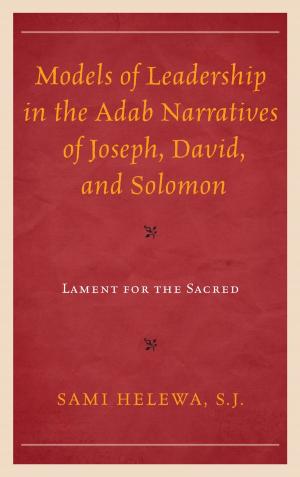A Discourse on African Philosophy
A New Perspective on Ubuntu and Transitional Justice in South Africa
Nonfiction, Religion & Spirituality, Philosophy, Political| Author: | Christian B. N. Gade | ISBN: | 9781498512268 |
| Publisher: | Lexington Books | Publication: | April 18, 2017 |
| Imprint: | Lexington Books | Language: | English |
| Author: | Christian B. N. Gade |
| ISBN: | 9781498512268 |
| Publisher: | Lexington Books |
| Publication: | April 18, 2017 |
| Imprint: | Lexington Books |
| Language: | English |
Many have argued that ubuntu was a formative influence on the post-apartheid Truth and Reconciliation Commission (TRC), South Africa’s famous transitional justice mechanism. A Discourse on African Philosophy: A New Perspective on Ubuntu and Transitional Justice in South Africa challenges and contextualizes this view in a way that not only provides new findings and reflections on ubuntu and the TRC, but also contributes to the field of African philosophy. One of Christian B. N. Gade’s key findings, founded on qualitative interviews in South Africa, is that some former TRC commissioners and committee members question the importance of ubuntu in the TRC process. Another is that there are several differing and historically developing interpretations of ubuntu, some of which have evident political implications and reflect non-factual and creative uses of history. Thus ubuntu is not a shared cultural heritage, in the ethnophilosophical sense of a static property characterizing a group. In fact, throughout this book Gade argues that the ethnophilosophical approach to African philosophy as a static group property is highly problematic. Gade’s research presents an alternative collective discourse on African philosophy (“collective” in the sense that it does not focus on any single individual in particular) that takes differences, historical developments, and social contexts seriously.
This book will be of interest to scholars in African philosophy, transitional justice, politics and cultural heritage, and law in South Africa.
Many have argued that ubuntu was a formative influence on the post-apartheid Truth and Reconciliation Commission (TRC), South Africa’s famous transitional justice mechanism. A Discourse on African Philosophy: A New Perspective on Ubuntu and Transitional Justice in South Africa challenges and contextualizes this view in a way that not only provides new findings and reflections on ubuntu and the TRC, but also contributes to the field of African philosophy. One of Christian B. N. Gade’s key findings, founded on qualitative interviews in South Africa, is that some former TRC commissioners and committee members question the importance of ubuntu in the TRC process. Another is that there are several differing and historically developing interpretations of ubuntu, some of which have evident political implications and reflect non-factual and creative uses of history. Thus ubuntu is not a shared cultural heritage, in the ethnophilosophical sense of a static property characterizing a group. In fact, throughout this book Gade argues that the ethnophilosophical approach to African philosophy as a static group property is highly problematic. Gade’s research presents an alternative collective discourse on African philosophy (“collective” in the sense that it does not focus on any single individual in particular) that takes differences, historical developments, and social contexts seriously.
This book will be of interest to scholars in African philosophy, transitional justice, politics and cultural heritage, and law in South Africa.















